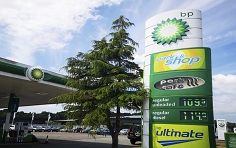ii view: BP begins to reinvent itself
A very tough quarter, but is this oil giant morphing into a low carbon energy income play?
10th August 2020 14:20
by Keith Bowman from interactive investor
A very tough quarter, but is this oil giant morphing into a low carbon energy income play?

Second-quarter results to 30 June
- Loss of $6.7 billion versus a profit of $2.8 billion in the second quarter of 2019
- Net debt down 12% to $40.9 billion
- Dividend down 50% to 5.25 US cents per share from the first quarter
- New strategy towards low carbon energy
Chief executive Bernard Looney said:
"These headline results have been driven by another very challenging quarter, but also by the deliberate steps we have taken as we continue to reimagine energy and reinvent bp. In particular, our reset of long-term price assumptions and the related impairment and exploration write-off charges had a major impact. Beneath these, however, our performance remained resilient, with good cash flow and - most importantly - safe and reliable operations."
ii round-up:
Oil giant BP operates in over 75 countries across the world.
It employs just over 70,000 staff, with around 1.7 million barrels of oil passing through its refineries daily, and runs over 18,500 retail forecourt sites globally.
For a round-up of these second-quarter results, please click here.
ii view:
Global climate change initiatives now look to have been accelerated by the Covid-19 pandemic. The success of work from home requests across many countries has cut commuting and, in its wake, cut petrol and diesel or carbon energy use.
BP earlier this month revised down its long-term expectations for fuel prices following the pandemic. Now it is looking to use this period of significant challenge and disruption to reset its strategy. It wants to become a low carbon energy producer as it plans to increase investment in more climate friendly energy ten-fold by 2030. No exploration in new countries will be undertaken with a targeted 40% reduction in hydrocarbon production being made by 2030 through active portfolio management. Emissions from its own operations are to be cut by around a third.
For investors, the biggest causality of lower fuel price assumptions and an accelerated push towards a greener future is the dividend payment. The quarterly return to shareholders has been halved. But initial investor reaction was positive. As with rival Shell (LSE:RDSB), the weight of the dividend has been lifted, although is still relatively generous at an estimated 5%-plus (not guaranteed). This gives BP greater flexibility to both reduce debt and invest in its targeted greener energy expansion. In all, while 2020 is unlikely to be the year existing investors would have wished for, it may mark the year when major changes in strategy laid the foundation for BP to become an energy provider fit for the future.
Positives:
- Outlined a greener future strategy
- Debt reduced by 12% year-over-year
Negatives:
- Dividend payment reduced
- Other green energy providers may prove more successful
The average rating of stock market analysts:
Buy
These articles are provided for information purposes only. Occasionally, an opinion about whether to buy or sell a specific investment may be provided by third parties. The content is not intended to be a personal recommendation to buy or sell any financial instrument or product, or to adopt any investment strategy as it is not provided based on an assessment of your investing knowledge and experience, your financial situation or your investment objectives. The value of your investments, and the income derived from them, may go down as well as up. You may not get back all the money that you invest. The investments referred to in this article may not be suitable for all investors, and if in doubt, an investor should seek advice from a qualified investment adviser.
Full performance can be found on the company or index summary page on the interactive investor website. Simply click on the company's or index name highlighted in the article.